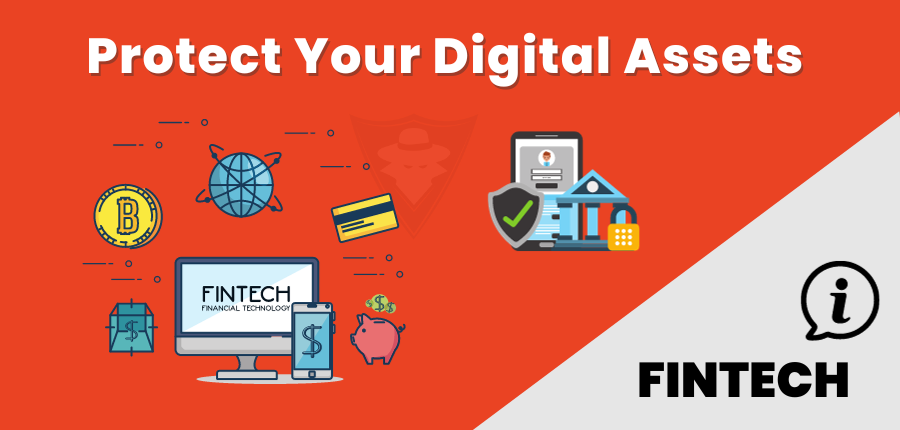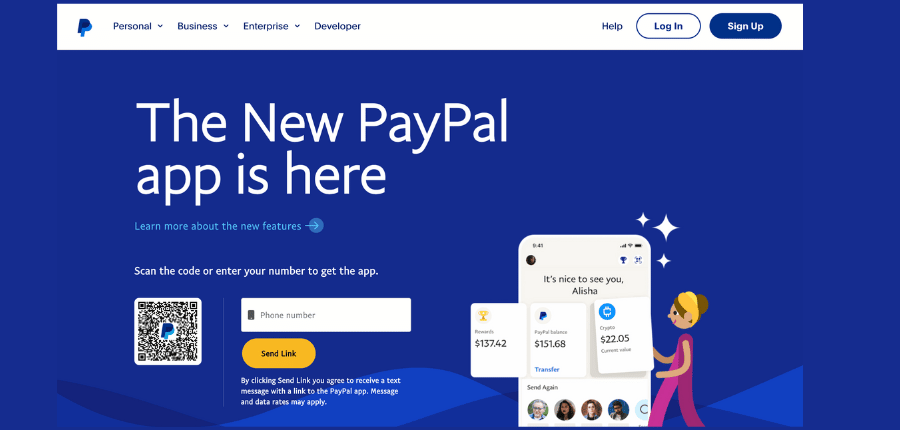How To Protect Your Digital Assets In 2024: Bitcoin Security In recent years, Bitcoin and other cryptocurrencies have gained significant popularity as both investment opportunities and mediums of exchange. However, with the increasing adoption of digital assets comes the...

How To Protect Your Digital Assets In 2024: Bitcoin Security
In recent years, Bitcoin and other cryptocurrencies have gained significant popularity as both investment opportunities and mediums of exchange.
However, with the increasing adoption of digital assets comes the need for robust security measures to protect your holdings from various threats.
In this article, we will explore the world of Bitcoin security, covering essential concepts, common threats, and best practices to ensure the safety of your digital wealth.
Safeguarding your digital assets is vital as well as learning the art of investing. Get in touch with immediate-ifex-ai.com which is an investment education firm.�
Understanding the Basics of Bitcoin Security

Private Keys and Public Keys
At the core of Bitcoin security are cryptographic keys. Your private key is a secret code that allows you to access and control your Bitcoins, while your public key is a public identifier that others can use to send you Bitcoins.
It�s crucial to keep your private key secure, as anyone who gains access to it can potentially steal your funds.
Wallet Types: Hot Wallets vs. Cold Wallets
Bitcoin wallets come in two primary forms: hot wallets and cold wallets.
Hot Wallets: These are wallets connected to the internet and are convenient for everyday transactions. However, they are more susceptible to hacking and online threats. Cold Wallets: Cold wallets, on the other hand, are offline storage solutions that offer enhanced security. They include hardware wallets and paper wallets.The Role of Blockchain in Security
The Bitcoin blockchain, a decentralized and immutable ledger, plays a vital role in security. Transactions are recorded on the blockchain, providing transparency and accountability.
Once confirmed, transactions are virtually irreversible, making it challenging for malicious actors to manipulate the system.
Common Threats to Bitcoin Security
Phishing Attacks and Scams
Phishing attacks involve tricking users into revealing their private keys or login credentials by posing as legitimate entities. Be cautious of suspicious emails, websites, or messages asking for your Bitcoin-related information.
Malware and Keyloggers
Malicious software can infect your device and record keystrokes, enabling hackers to steal your private keys or access your wallet. Regularly update your antivirus software and be cautious when downloading files or clicking on links.
Social Engineering and Identity Theft
Social engineering tactics involve manipulating individuals into revealing sensitive information. Be cautious when sharing personal details online and avoid discussing your Bitcoin holdings with strangers.
Exchange and Wallet Vulnerabilities
Bitcoin exchanges and wallets can be vulnerable to hacking. Choose reputable service providers with a history of security and consider spreading your holdings across multiple wallets for added protection.
Best Practices for Securing Your Bitcoins
Choosing a Reputable Wallet
Selecting a trusted wallet provider is paramount. Research and choose wallets with a strong track record of security and user reviews.
Generating and Storing Private Keys Securely
When generating private keys, do so in a secure and offline environment to minimize exposure to potential threats. Store them safely and confidentially.
Using Hardware Wallets for Added Protection
Hardware wallets, such as Ledger and Trezor, provide enhanced security by storing your private keys offline and requiring physical confirmation for transactions.
Implementing Two-Factor Authentication (2FA)
Enable 2FA on your wallet and exchange accounts. This extra layer of security requires you to verify your identity through a separate device or app.
Regularly Updating Software and Firmware
Keep your wallet software and hardware firmware up to date. Developers frequently release updates to address vulnerabilities and improve security.
Cold Storage and Multisignature Wallets
Exploring the Concept of Cold Storage
Cold storage involves keeping your private keys completely offline, thus minimizing exposure to online threats. Hardware wallets and paper wallets are common forms of cold storage.
Benefits of Multisignature Wallets
Multisignature wallets require multiple private keys to authorize transactions. This added layer of security reduces the risk of a single point of failure.
How to Set Up a Multisignature Wallet?
To set up a multi-signature wallet, you�ll need multiple private keys and a thorough understanding of the process. Follow detailed guides and consider consulting experts for assistance.
Offline and Paper Wallets
The Advantages of Offline Wallets
Offline wallets are impervious to online threats, making them ideal for long-term storage of significant amounts of Bitcoin.
Creating and Using Paper Wallets
Paper wallets involve printing your private and public keys on a physical piece of paper. Ensure you generate them securely and store them in a safe place, away from prying eyes.
Safely Storing and Retrieving Paper Wallets
Take precautions to protect your paper wallet from physical damage or loss. Make multiple copies and store them in different secure locations.
Backing Up and Recovering Your Bitcoins
The Importance of Regular Backups
Regularly back up your wallet�s data and store it securely. This ensures that you can recover your funds in case of device failure or loss.
Strategies for Securely Backing Up Your Wallet
Utilize encrypted USB drives, cloud storage, or physical copies for backups. Store backups in multiple secure locations to mitigate the risk of data loss.
Step-by-Step Guide to Wallet Recovery in Case of Loss
Have a clear plan for wallet recovery, including access to backups and private keys. Follow established procedures to regain access to your Bitcoins.
Advanced Bitcoin Security Measures
Using a Passphrase for Added Encryption
Consider using a passphrase in addition to your private key for an extra layer of security. This ensures that even if someone accesses your key, they cannot use it without the passphrase.
Setting Up a Watch-Only Wallet
A watch-only wallet allows you to monitor your Bitcoin balance and transactions without exposing your private key. It�s a useful tool for increased security.
Employing Hardware Security Modules (HSMs)
Hardware Security Modules (HSMs) are specialized devices that provide an extremely high level of security for cryptographic operations. They are commonly used by enterprises and institutions to safeguard digital assets.
Keeping Your Bitcoins Safe in a Changing Landscape
Regulatory Considerations and Compliance
Stay informed about the regulatory environment in your region. Comply with any legal requirements related to cryptocurrency ownership and reporting.
Evolving Security Threats and Staying Informed
Bitcoin security threats are continually evolving. Stay updated on the latest security practices and be aware of emerging threats to adapt your protection measures accordingly.
Future Developments in Bitcoin Security Technology
As the cryptocurrency space matures, new security technologies and standards will emerge. Stay engaged with the community to benefit from advancements in Bitcoin security.
Conclusion
In conclusion, safeguarding your digital assets, especially Bitcoin is of paramount importance in today�s digital age.
Understanding the fundamentals of Bitcoin security, being vigilant against common threats, and implementing best practices can significantly reduce the risk of falling victim to malicious actors.
Remember, Bitcoin security is an ongoing process in this ever-changing landscape.�












